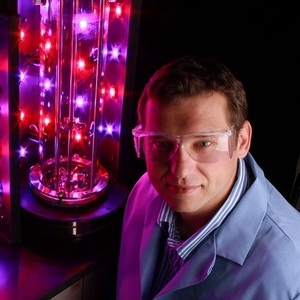PNNL, Australian university form research pact




Pacific Northwest National Laboratory
June 27, 2016
BY Pacific Northwest National Laboratory
Coaxing energy from renewable resources like plant matter or algae, cost-effectively, is a scientific challenge larger than one research team or even one nation. Now, two research institutions half way across the globe from each other are banding together to share information, ideas and even staff.
The Department of Energy's Pacific Northwest National Laboratory and the Queensland University of Technology in Brisbane, Australia, have collaborated on bioenergy and microbial biotechnology in the past. Now they are formalizing their relationship to enhance their bioenergy research, promote education, and develop industry around and viable bioenergy solutions in their respective countries—with special emphasis on adaptive bioprocesses.
The memorandum of understanding was signed by PNNL Director of Strategic Partnerships Doug Ray and QUT's Deputy Vice-Chancellor for Research and Commercialization Arun Sharma.
Advertisement
Advertisement
This is the first time PNNL has entered into a MOU involving joint staff appointments with a research institution outside the U.S. PNNL microbiologist Alex Beliaev is expected to hold the first joint research appointment between the two organizations. The agreement will also involve collaborative research and academic exchange including staff and students.
PNNL brings expertise in systems biology, including fungal, algal and microbial genomics, computational biology and an array of cutting-edge multi 'omics capabilities. The field of 'omics explores how genes, proteins and various metabolic products interact. The term arises from research that explores the function of biological components within the context of the entire cell to understand how organisms work, such as genomics for genes, proteomics for proteins, and so on.
Advertisement
Advertisement
QUT's expertise lies with plant biotechnology, consolidated bioprocessing and process modeling. The QUT Center for Tropical Crops and Biocommodities partners with a wide range of commercial entities and funders such as the Bill & Melinda Gates Foundation.
Both institutions work in advanced thermochemical conversion of biomass to create biofuels, plant-derived chemicals and other bioproducts. The partnership will focus on work that aims to reduce greenhouse gas emissions and provide low-carbon energy solutions in both countries.
Related Stories
The U.S. Department of Energy Bioenergy Technologies Office (BETO) announced up to $23 million in funding to support research and development (R&D) of domestic chemicals and fuels from biomass and waste resources.
The U.S. DOE has announced its intent to issue funding to support high-impact research and development (R&D) projects in two priority areas: sustainable propane and renewable chemicals and algal system cultivation and preprocessing.
Sens. Sherrod Brown, D-Ohio, and Pete Ricketts, R-Neb., in August introduced the Renewable Chemicals Act, a bill that aims to create a tax credit to support the production of biobased chemicals.
The Chemical Catalysis for Bioenergy Consortium, a consortium of the U.S. DOE’s Bioenergy Technologies Office, has launched an effort that aims to gather community input on the development of new biomass processing facilities.
USDA on March 8 celebrated the second annual National Biobased Products Day, a celebration to raise public awareness of biobased products, their benefits and their contributions to the U.S. economy and rural communities.
Upcoming Events










